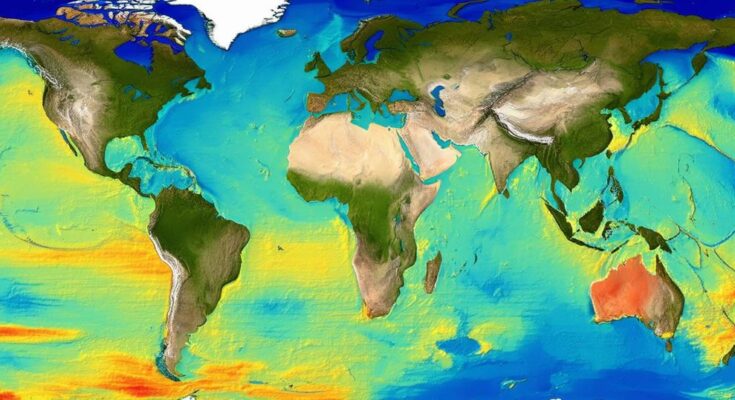The UN has warned that the world is heading towards a “catastrophic” increase in global temperatures of approximately 3.1°C by the century’s end due to insufficient climate action. Unless nations significantly enhance their emissions reduction efforts, the goal to limit warming to 1.5°C may soon be unattainable. The upcoming UN Cop29 talks in Baku are crucial for addressing financial support for developing nations and bridging the emissions gap. Current data indicates an alarming trend in rising greenhouse gas emissions, particularly among G20 countries. Immediate global mobilization is essential to avert further climate disaster.
The United Nations has issued a grave warning that the world is on a trajectory towards a “catastrophic” increase in global temperatures, estimating a rise of approximately 3.1°C by the end of this century if current emissions reduction efforts remain unchanged. In its annual report, the UN Environment Programme (UNEP) highlighted the pressing need for ambitious initiatives to mitigate climate change, cautioning that the goal of limiting warming to 1.5°C could soon become unattainable without unprecedented global mobilization. Current projections indicate that, depending on the implementation of promised climate actions, global temperature increases could range from 2.6°C to 3.1°C. As nations prepare for the upcoming UN Cop29 climate conference in Baku, Azerbaijan, the report emphasizes the urgent need for leaders to enhance financing for developing countries to combat climate change and to address the widening emissions gap. Despite commitments made during the 2015 Paris Agreement to limit warming to well below 2°C and to pursue efforts to restrict it to 1.5°C above pre-industrial levels, the report reveals that greenhouse gas emissions continue to escalate, having reached an all-time high in 2023. Moreover, the latest data shows a 1.3% increase in emissions from 2022, surpassing the average increase over the past decade, with the G20 nations responsible for approximately 77% of global emissions. The report cautions that if nations do not fulfill their climate pledges, the world could face long-term warming of 3.1°C. UN Secretary-General Antonio Guterres expressed the dire situation, stating, “Either leaders bridge the emissions gap, or we plunge headlong into climate disaster – with the poorest and most vulnerable suffering the most.” Inger Andersen, UNEP Executive Director, remarked, “Climate crunch time is here. We need global mobilization on a scale and pace never seen before – starting right now, before the next round of climate pledges… every fraction of a degree avoided counts in terms of lives saved, economies protected…”. The report concludes that achieving the 1.5°C goal necessitates a collective commitment to reduce annual greenhouse gas emissions by 42% by 2030 and 57% by 2035, followed by a significant expansion of renewable energy and a shift away from fossil fuels. Furthermore, it underscores the importance of a unified global effort led by G20 nations to effectuate these reductions. Ed Miliband, the Energy Secretary, reiterated the importance of leadership in tackling the climate crisis and noted that the advancements in renewable energy technology could not only address climate issues but also enhance energy security and economic prosperity.
The urgency surrounding global warming is underscored by the alarming projections of temperature rises communicated in reports from the United Nations. The significance of limiting temperature increases to no more than 1.5°C rests upon the ever-growing evidence that beyond this threshold, the global population will experience severe disruptions due to extreme weather events, diminished natural systems, and increasing sea levels. The acknowledgment of the pressing need for innovative solutions, financing strategies for developing countries, and concerted international efforts underscores the challenges in meeting climate pledges established during the Paris Agreement.
In summary, the UN’s report highlights the precarious state of global efforts to combat climate change, warning that without immediate and bold action, the world may face a catastrophic rise in temperatures of up to 3.1°C. As nations gear up for the pivotal UN Cop29 conference, it is imperative that leaders commit to substantial emissions reductions and foster collaboration, particularly in financing initiatives for developing nations. The call for concentrated efforts to transition towards sustainable energy sources, protect natural habitats, and reduce greenhouse gas emissions is louder than ever, as the climate crisis intensifies.
Original Source: www.irishnews.com




